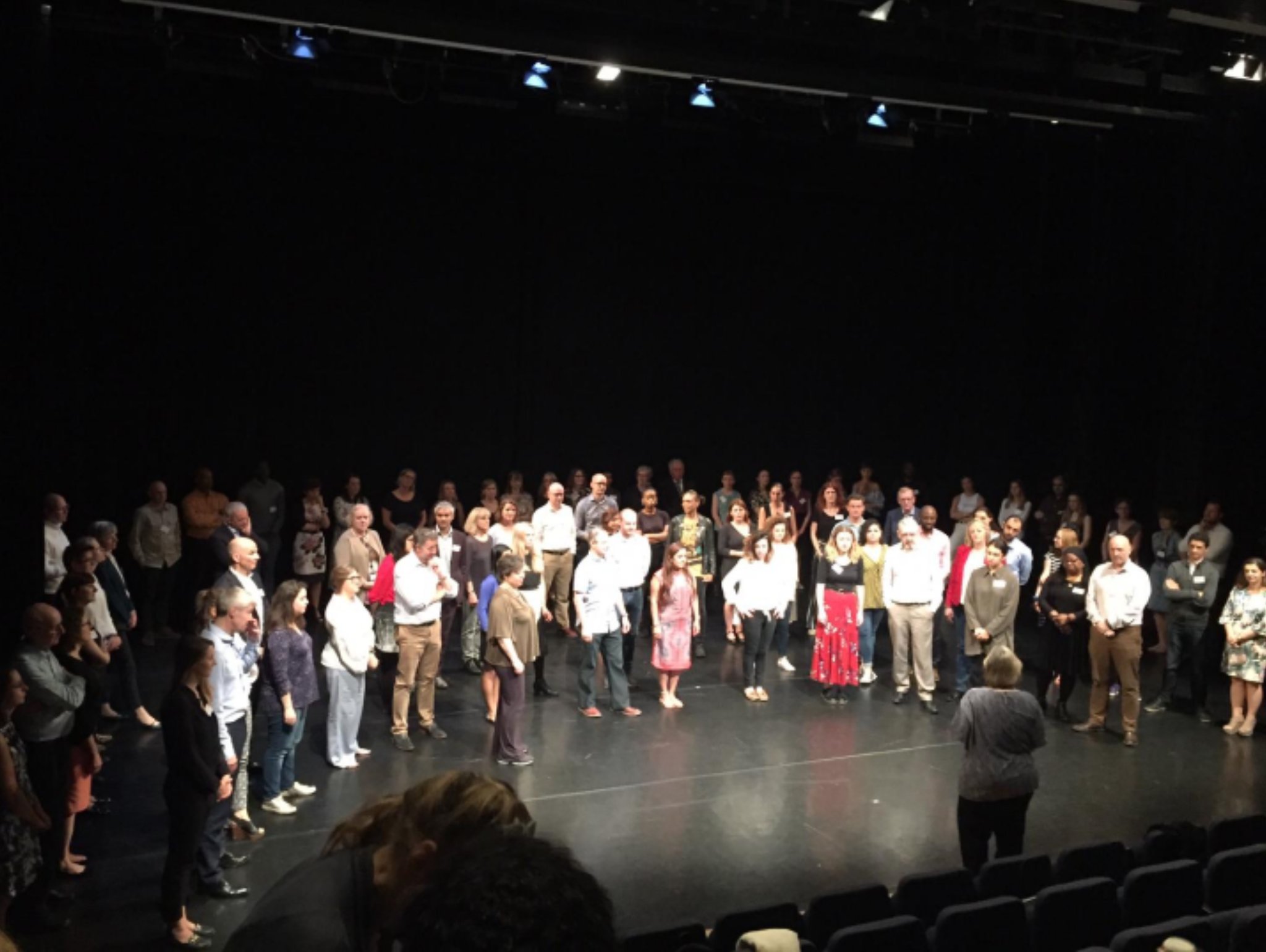When Barclaycard’s managers entered banking, they probably never saw it as a career path to a West End stage. Nor were feather boas, sparkling capes or shouting matches part of their equation for a life in finance.
Yet in the early months of 2006, over 300 middle managers were exposed to this and more during a challenging programme to help them become inspiring leaders. This was part of a six-month long programme called Leadership Essentials, in which a key requirement was the ability to inspire and engage colleagues.
Talented and experienced participants
Participants were already talented, well trained, and experienced. This next phase of their development, though, was not about competence. Instead, it tackled communication, vitality and creativity; skills essential for helping Barclaycard stay ahead in a world where only excellent communicators win.
Barclaycard needed leaders able to present and interact with confidence and passion, and who could also make such behaviour infectious to their teams.
How could theatre help?

Using the theatre gave each person the rare opportunity to get up on stage and have a go at revealing the side of their personality that can blow an audience away.
Asked to bring something that inspired them to perform, people revealed wit, depth or artistry they had not realised they possessed. For others, a solo performance revealed inhibitions, fears, and ideas about themselves that might otherwise have gone unaddressed.
The aim was to help the participants find new ways to inspire and engage colleagues. Over the two and a half days, participants were challenged, given honest feedback, and asked the question: “What does your performance on stage tell you about your performance in life?”
Performances were not limited to being on stage. It was equally important to perform:
- as a coach
- as a communicator
- one – to – one
- or in a group
“If someone had told me before I came on this two day course how much I would get from it, I just wouldn’t have believed them.
Wendy Palmer
When she saw from the audience’s response how she was more inspiring by allowing the full force of her opinion and feelings show, she vowed to be more herself back at work, particularly in meetings.
“I used to stay quiet in meetings if I disagreed with something, not wanting to sound like a ranting woman, but I say what I think now.” Since then the feedback has only been positive.
What made this unique?
This project involved Maynard Leigh’s creative version of emotional intelligence. Physical, energising, and playful emotional exercises encouraged people to feel, to express and also discuss emotions with more freedom and time than at work.
“The change in me as a result of doing this has been immense”, comments Iain Craig, another participant. “I had begun to fall into that trap of becoming a default professional. But I came away from the theatre and re-prioritised what’s important. When I realise what I feel about something now, I get right behind it and really say it strongly. It makes such a difference.”
Inspired by his learning experience Iain recently launched a drive to change the office plan so that his team could all sit together, something which had been a problem for months. Once committed, it took Iain just one afternoon to complete.
Bankers in theatre might sound incongruous – even absurd. Yet these leaders, to whom hundreds of customer-facing employees look for example each day, are on show every minute.
Inspiring and Engaging Colleagues provided Barclaycard leaders with a stage on which to explore their strengths. It reminded them of the pleasure from providing outstanding performance to their own audience, their teams and customers back in the world of banking.


